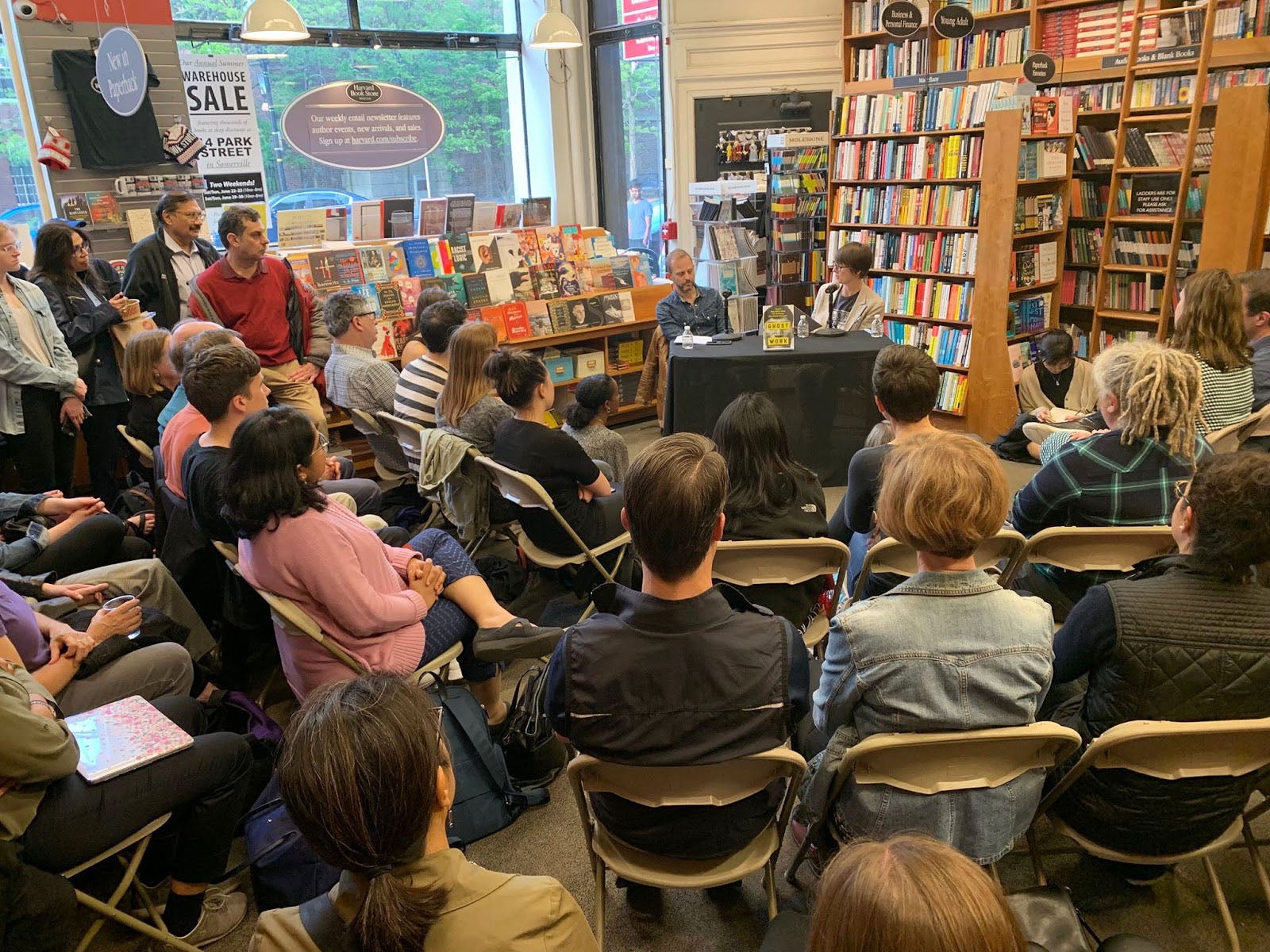With increasingly advanced algorithms, the Internet and other technologies seem to have solutions on hand for many common problems, such as transcribing videos, moderating content on platforms, or verifying identities. But these algorithms have limitations, and they can’t fully capture the complex needs of humans.
Often, there are people working deep behind the scenes to ensure that the algorithm or technology appears to provide the best result. These hidden people, whom Mary L. Gray and Siddharth Suri argue do “ghost work” are contracted by businesses to improve the experience on sites across the Internet.
“[Ghost work is] often sold as the magic button of the Internet, just working for you,” Gray explained at the Harvard Bookstore, where she spoke about her book “Ghost Work: How to Stop Silicon Valley from Building a New Global Underclass,” which she co-authored with Suri. A Berkman Klein fellow, Senior Researcher at Microsoft Research, and Associate Professor at Indiana University, Gray was joined in conversation by Gideon Lichfield, editor-in-chief of MIT Technology Review.
Gray, an anthropologist and media scholar by training, and Suri, a computer scientist, conducted an ethnographic and computational study of people doing ghost work, which formed the basis of “Ghost Work.” The pair uncovered working conditions and habits, common reasons for turning to this type of work, and creative ways people complete tasks.
The kind of ghost work tasks outsourced to people, such as determining whether a photo contains graphic imagery, may be dismissed by some as mundane or dull. Gray argued, in contrast, that there is a creative cognitive expertise required in the work: the workers are making important decisions, often on a timer, and bringing their own unique experiences and insight to each task. “Being able to make a decision with a lot of pressure, we’ve always devalued that,” Gray explained.
Ghost work is masked by its distance to consumers and citizens, who often don’t realize that there is human labor behind their experience online. Given this obscurity, Lichfield compared such challenges of garnering collective action for exposing and mollifying ghost work to the challenges of tackling climate change.
While citizens and consumers need to take action to improve labor conditions for the next generation, Gray replied, in the immediate term, people – and employees at major technology companies in particular – should demand universal healthcare to make an impact. Advocating for others, and improving healthcare on a wider scale, will drastically improve working conditions for those doing contract ghost work on-demand.
“Ghost Work” joins discussions of labor and the economy and is similar in some ways to the challenges of the gig economy and contract labor. The hidden work economy is a component of global labor structures and is often led by economists, but there needs to be an interdisciplinary approach to the issue, Gray said.
“I don’t know that I think economists really should be the ones leading the debate around labor. They need to be part of the picture, but we need to stop thinking that this is a market problem,” Gray said. “Labor is a question of our political and moral will to value people’s contributions to our productivity and exchanges in society. We keep looking for market solutions to something that, arguably, is a social question – a cultural question – of how to value each other.”
